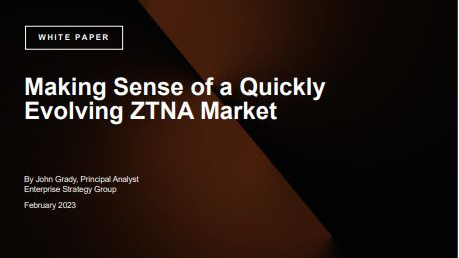Oracle is betting big that every country will soon have its own sovereign cloud
Oracle has rolled out its pan-European sovereign cloud service, but co-founder Larry Ellison thinks individual nations will begin capitalizing on the trend


Sign up today and you will receive a free copy of our Future Focus 2025 report - the leading guidance on AI, cybersecurity and other IT challenges as per 700+ senior executives
You are now subscribed
Your newsletter sign-up was successful
Oracle CTO and chairman Larry Ellison expects a widespread shift toward national sovereign cloud setups in the coming years as governments ramp up efforts to keep data in-country.
Ellison made the prediction in a recent earnings call during a discussion on demand for Oracle cloud regions, noting a sharp governmental interest in sovereign cloud services.
“Pretty much every government is going to want a sovereign cloud and a dedicated region for that government,” Ellison said.
Oracle is well placed to win that sort of business, Ellison feels, by leveraging Oracle Cloud Infrastructure (OCI) to provide dedicated and independent cloud regions for national and state-level governments.
“We have a number of countries where we’re negotiating … sovereign regions with the national government,” Ellison said.
Ellison used Oracle’s current activities in Japan as somewhat of an example, explaining how the popularity of Oracle Cloud in the region was set to have a knock-on effect in certain big sectors such as the automobile or telecommunications industries.
The ability of Oracle customers to “add their own services” into Oracle cloud regions makes them attractive to these sectors, he noted due to the fact they’re sovereign, highly secure, and cost-effective.
Sign up today and you will receive a free copy of our Future Focus 2025 report - the leading guidance on AI, cybersecurity and other IT challenges as per 700+ senior executives
This makes them perfect for the use-cases of customers that need to maintain a level of control over data sovereignty.
Long-term, Ellison suggested Oracle could position itself as the go-to provider for government and public sector cloud services. While enterprise customers remain critical to the company, CEO Safra Catz pointed out in the same earnings call that the firm is the “only vendor” that offers a complete cloud ecosystem of customer-dedicated and sovereign clouds.
This puts the firm in a strong position to leverage its audience of sovereign cloud customers in the public sector who want to set up shop in a national cloud region rather than a global one.
Dario Maisto, senior analyst at Forrester, told ITPro that Ellison’s comments point toward a shift in focus for Oracle as it ramps up efforts to work closely with national governments and find its niche in an increasingly competitive global marketplace.
“[Oracle] are likely to increase the share of their revenues coming from the public sector,” Maisto said.
That being said, Maisto is careful to point out that this is a product that speaks to the specific concern of digital sovereignty and thus lends itself to a more niche market.
“Selling to countries is going to work well to expand their business in industries where digital sovereignty concerns are of paramount importance,” he added.
Oracle is ramping up sovereign cloud efforts
With concerns about data sovereignty a recurring topic in recent years, sovereign cloud regions are more and more revealing themselves as practical solutions to worries over the legal and regulatory implications of the cloud.
Ellison refered to moves Oracle itself has been making for some time, with one of the most significant developments taking place in 2023 when it unveiled a sovereign cloud region in Europe.
With countries and regions more frequently expressing concern about the location of cloud companies’ data processing, it makes logical sense that governments themselves would be turning to sovereign cloud services.
“Public cloud is not taboo anymore for public sector organizations, public agencies, and governments,” Maisto said. “Public cloud vendors are doing all they can to abide by local regulations and make their offerings compliant in the face of digital sovereignty constraints.”
RELATED WHITEPAPER

“So yes, the public sector is increasingly attractive, and more and more cloud vendors are focusing on public sector organizations,” he added.
Rackspace became the latest firm to target a sovereign cloud offering directly at the public sector, announcing it's UK Sovereign Services platform to provide dedicated compute and storage ‘Pods’ for various public sectors.
Private companies increasingly demand sovereignty as well to comply with stringent compliance regulations regarding the location of data.
Microsoft, for example, has come under fire for the time it took to completely roll out its data sovereignty plans in Europe.

George Fitzmaurice is a former Staff Writer at ITPro and ChannelPro, with a particular interest in AI regulation, data legislation, and market development. After graduating from the University of Oxford with a degree in English Language and Literature, he undertook an internship at the New Statesman before starting at ITPro. Outside of the office, George is both an aspiring musician and an avid reader.
-
 AWS CEO Matt Garman isn’t convinced AI spells the end of the software industry
AWS CEO Matt Garman isn’t convinced AI spells the end of the software industryNews Software stocks have taken a beating in recent weeks, but AWS CEO Matt Garman has joined Nvidia's Jensen Huang and Databricks CEO Ali Ghodsi in pouring cold water on the AI-fueled hysteria.
-
 Deepfake business risks are growing
Deepfake business risks are growingIn-depth As the risk of being targeted by deepfakes increases, what should businesses be looking out for?